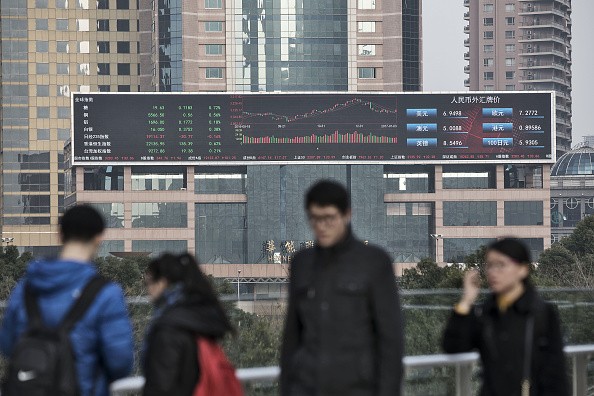China's stimulus programs may have helped the country meet its growth target but it created stability risks in return, international ratings agency Fitch said a report on Monday, Jan. 23, CNBC reported.
Fitch attributed China's 6.7-percent growth and the 6.8-percent growth of its gross domestic product (GDP) in the fourth quarter of 2016, to stimulus measures.
In its report titled, "China's stable growth reflects stimulus not sustainability," Fitch said that China attained its growth target but sacrificed reforms for increased leverage.
"Short-term growth targets have been prioritized over some areas of structural reform, particularly efforts to reduce the economy's dependence on credit-intensive investment. Policy stimulus has succeeded in maintaining growth within the official target range, but it has come at the cost of a further build-up in leverage," Fitch said.
"The rapid increase in credit required to keep GDP growing at its current rate strongly suggests that a sustainable rate of medium-term economic growth--in which leverage and broader imbalances stabilize--is well below the authorities' prevalent growth targets," it added.
Fitch said that economic stability faced a "more significant risk" with China's effort to maintain its growth to the target level, noting that the aggregate financing rose faster than the GDP, and drove the debt-to-GDP ratio higher.
Compared with the nominal GDP of 8.0 percent, aggregate financing excluding equity, grew 12.4 percent last year, Fitch noted.
Fixed-asset investment by state-owned enterprises also rose by 19.1 percent last year, up from the 10.7 percent growth a year earlier, the ratings agency said.
"Outside of the SOE sector, fixed-asset investment growth slowed markedly, underlining the importance of stimulus in propping up demand and highlighting the risk that the economy might lack self-sustaining growth momentum," it said.
According to the report, China's GDP growth is expected to slow to 6.4 percent this year and 5.7 percent in 2018.
Fitch, however, said that the pressure on the Chinese currency and foreign reserves caused by the continued capital outflows will not likely be "systemically threatening."
But Fitch added that while continued fund outflows from the mainland were likely to continue to pressure the currency and foreign reserves, that wasn't likely to be "systemically threatening."
Although China's foreign exchange reserves fell by $41 billion in December, the ratings agency said it continues to the fifth-highest in foreign reserves adequacy among Fitch-rated sovereigns.
"Fitch's base case remains that China's large debt burden will translate into substantially slower economic growth by the end of the decade rather than an outright financial crisis," it said.
"A significant proportion of banks and borrowers in China's financial system are either directly owned by the state, or heavily state influenced, which guards against the kind of collapse in creditor confidence that might trigger a crisis," the report added.



























